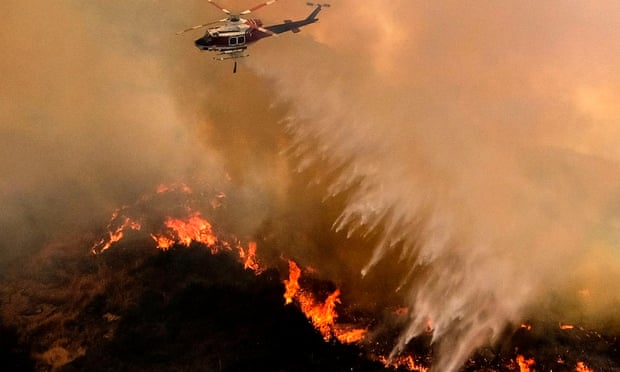
A helicopter drops water to a brush fire at the Holy Fire in Lake Elsinore, California, on Saturday. Photograph: Ringo Chiu/AFP/Getty Images
The fires have scorched states from Washington to New Mexico, with California among the hardest hit
theguardian.com - August 12, 2018
Six large new wildfires erupted in the United States, pushing the number of major active blazes nationwide to over 100, with more expected to break out sparked by lightning strikes on bone-dry terrain, authorities said on Saturday.
More than 30,000 personnel, including firefighters from across the United States and nearly 140 from Australia and New Zealand, were battling the blazes that have consumed more than 1.6m acres (648,000 hectares), according to the National Interagency Coordination Center . . .
. . . The fires have scorched states from Washington to New Mexico, with California among the hardest hit.
(CLICK HERE - READ COMPLETE ARTICLE)
Recent Comments